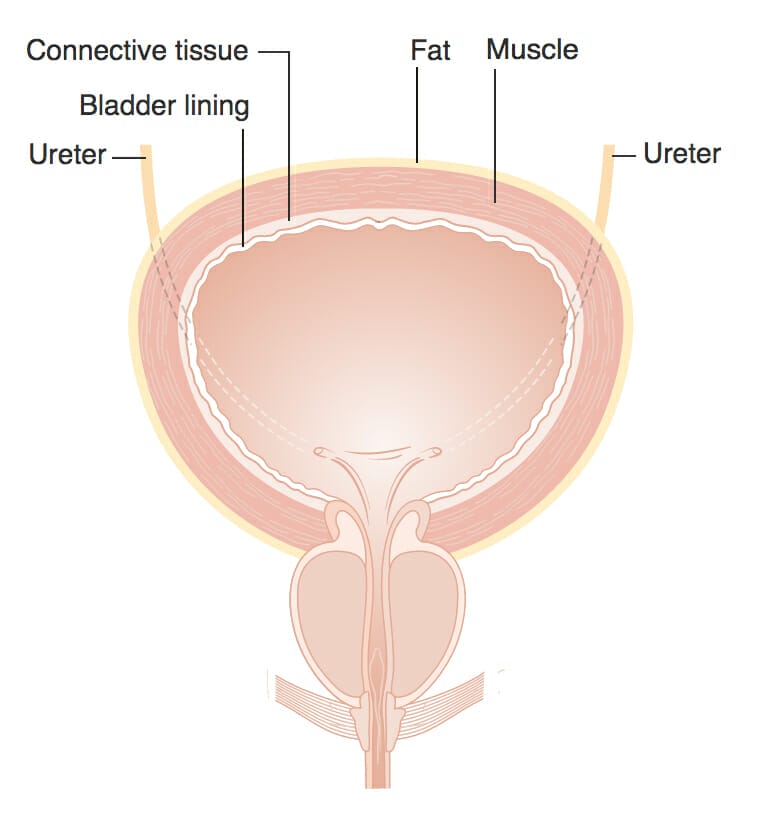The bladder is a hollow muscular organ that stores urine produced by the kidneys prior to expelling it through the urethra (urination). There are a number of conditions that can affect the bladder.
What is bladder cancer?
Bladder cancer is the 7th most common cancer in the UK, affecting 10,000 people each year. The most common symptom is blood in the urine. Other symptoms can include pain when passing urine, urinating on a more frequent basis and having sudden urges to pass urine. Smoking is one of the main risk factors for developing bladder cancer, being responsible for around half of all cases.
What investigations may be necessary?
• Urine dipstick. To assess for the presence of blood.
• Cystoscopy. Camera test of the waterpipe and bladder.
How is bladder cancer treated?
The majority of tumours are sitting on the surface lining of the bladder and can be completely removed via a telescope under general or spinal anaesthetic, called transurethral resection of bladder tumour (TURBT). The results of this first procedure dictate whether any further treatments are necessary. Commonly, follow-up surveillance cystoscopies are carried out because the tumour(s) can recur.
If you are at higher risk of tumour recurrence, you will be offered a course of bladder instillations (Mitomycin C or BCG).
If the tumour is invading the muscle wall of the bladder, more radical treatment in the form of bladder removal (radical cystectomy) or radiotherapy is advised.




